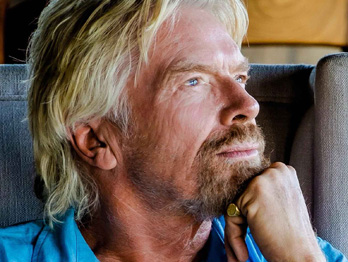Business leaders all over the world have been watching the build-up of Russian troops and equipment at the Ukrainian border with great concern. This has been a smouldering conflict for many years, with occasional flare-ups, like the illegal annexation of the Crimea by Russia in 2014.
But never in recent years has there been a greater risk of an all-out war on European soil – a war that, like so many before it, does not serve a just or legitimate objective. (It’s hard for any of us to hide our exasperation at this point. In 2022, what on earth is one country doing amassing tanks at another country’s borders?)
I’ve spent much of my adult life rallying against what I considered to be the unjust wars of our time. In March 1968, I joined tens of thousands of young people at London’s Trafalgar Square demonstrating against the Vietnam War, a rapidly escalating conflict that cost countless lives, crippled hundreds of thousands of children and adults, and ended in a humiliating defeat for the US and its allies. 35 years later, I was among the millions worldwide who took to the streets to protest the invasion of Iraq, a hawkish and reckless endeavour that destabilised the Middle East and made the world less safe.
Eight years ago, when Putin’s intentions in Ukraine had become more evident to the rest of the world, we launched an effort to mobilise Russian and Ukrainian business leaders to become advocates of a peaceful resolution between their countries. I remember numerous insightful meetings and calls with leaders and experts in politics and business, and we developed a much better understanding of the power dynamics fuelling this conflict. We also learned quickly that none of our Russian contacts, while privately opposed to Russia’s military intervention, were willing to raise their voice publicly. We issued a business statement that Western and Ukrainian business leaders were happy to sign, but we failed to get even one Russian signature because their fear of reprisals from the regime in Moscow was just too great.
Then and now, however, those I spoke to were unified in their view that any war between Russia and Ukraine would have devastating and terrible consequences. For starters, it would further isolate Russia and its president from the rest of the world and wreck the Russian economy. And of course, it would cause immense harm and suffering to people young and old trying to live in peace on either side of the border. As so often, it will be the civilian population that will bear the brunt of the aggression. Syria’s bloody civil war, in which Russian troops and mercenaries have been playing a terrible role, is a stark reminder of what’s at stake.
This is not a conflict President Putin can win in the long run. While he seems to care little what the world thinks of his geopolitical ambitions, he should care a great deal what the future prospect for his own country will be. At some point, ordinary Russians will come to realise that they deserve better, especially if the situation reaches a point where the inevitable insurgency of Ukrainians defending their homes, villages and towns brings back the haunting spectre of the Soviet failure in Afghanistan and its deadly toll on Russian sons, brothers and fathers.
For business leaders, this is the moment to come together and stand up for Ukraine’s sovereignty. Even if it comes at a price, all of us should send a clear message that unilateral aggression is always unacceptable and that the global business community will support the full range of sanctions against any nation that seeks to violate the sovereignty of another.
Richard Branson | Published on 27 January 2022, virgin.com



